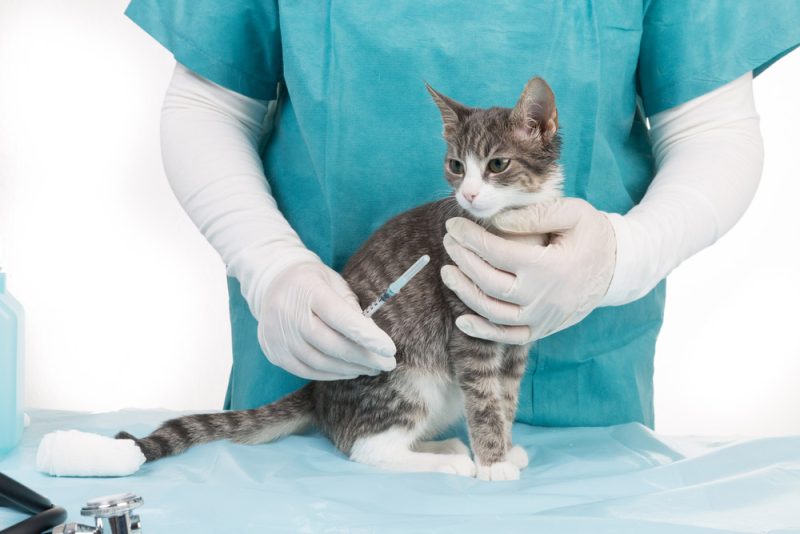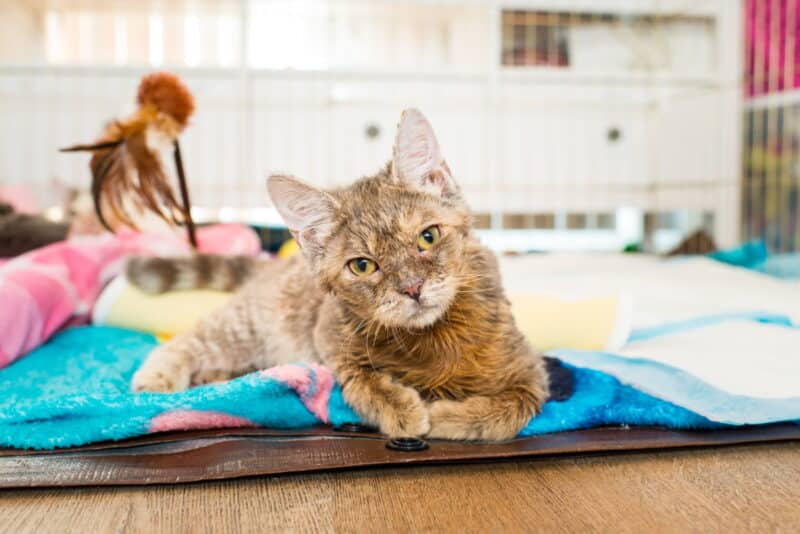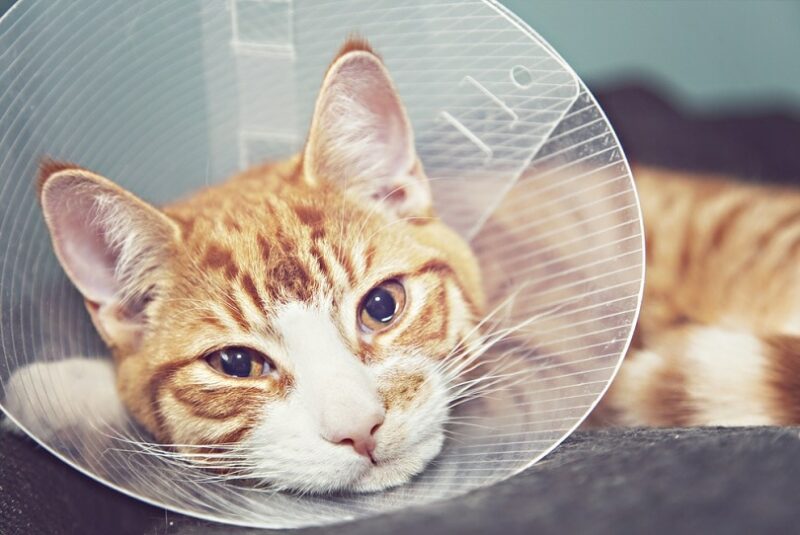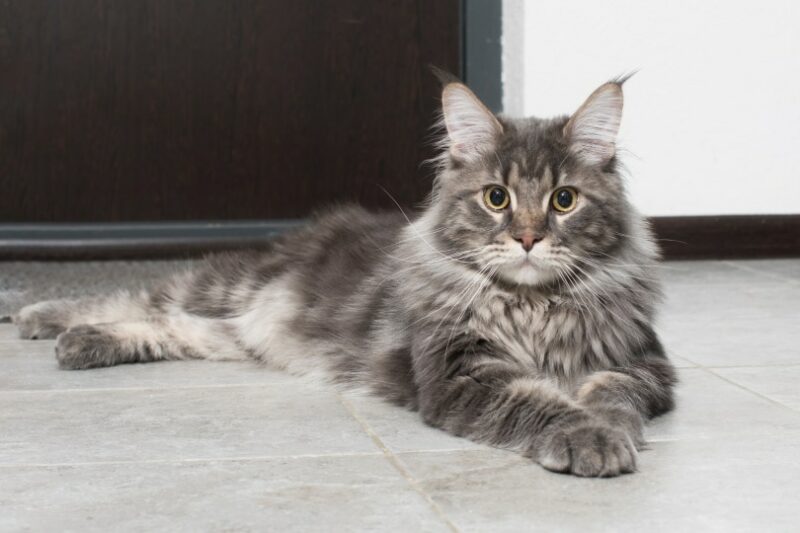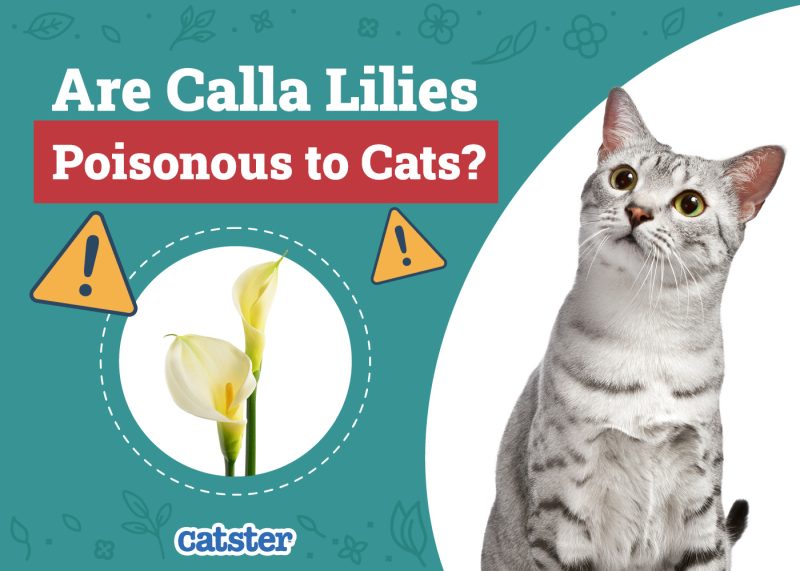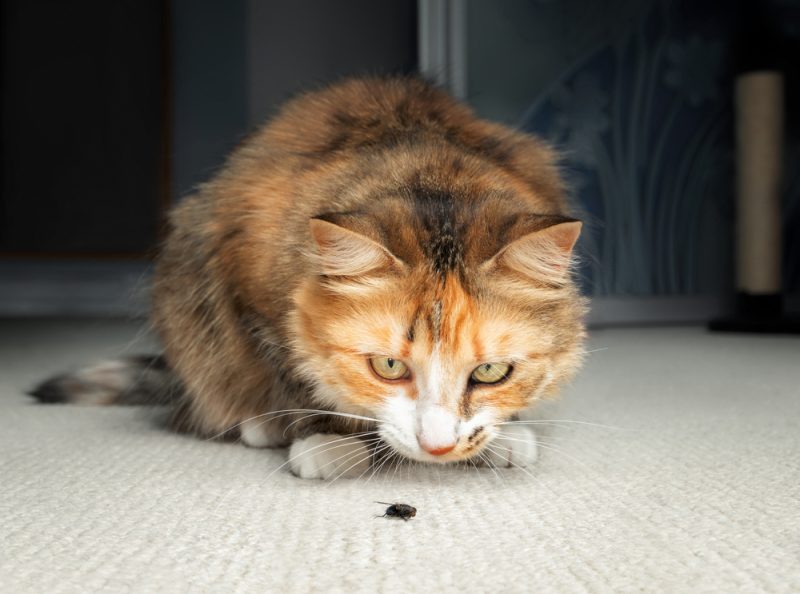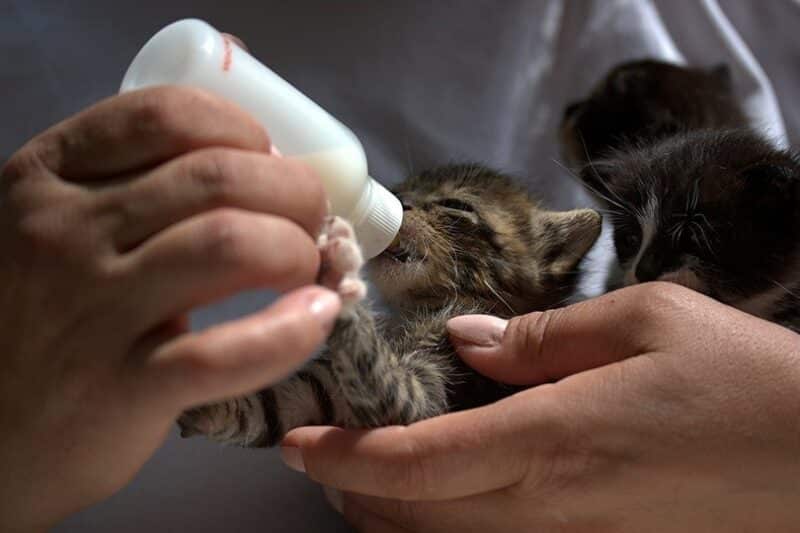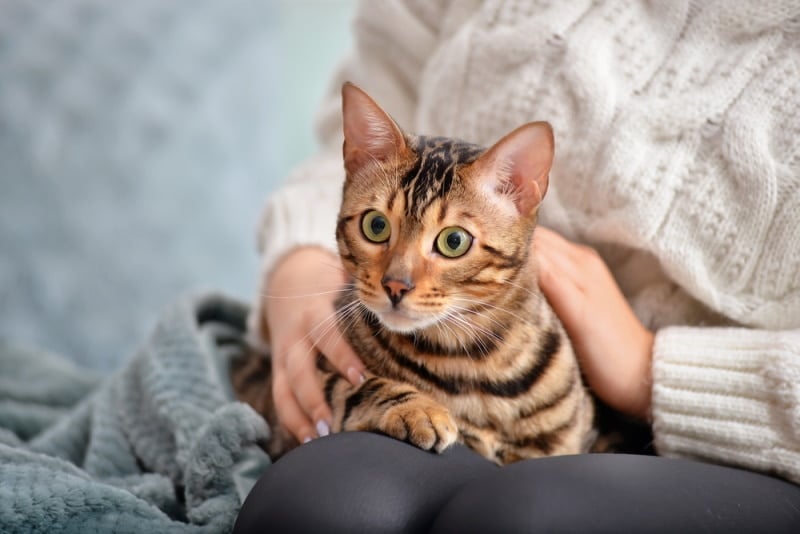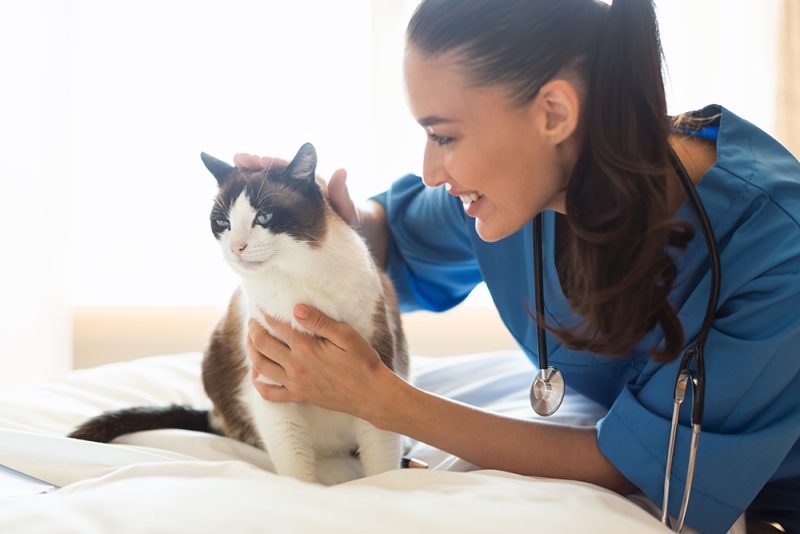In this article
If you live in a country where rabies is present in the wildlife population, vaccinating your pets against this deadly disease is not just essential to help save their life, but it may also be a legal requirement. As with so many things in the US, the laws and guidelines regarding rabies vaccination differ between states. Several states have no state law enforcing rabies vaccination, while in others it is compulsory for cats, dogs, and ferrets to be vaccinated, even if they do not venture outside.
Once you’ve navigated the legalities of rabies vaccination, you will now be faced with more inconsistencies, like rabies vaccines that need to be given annually versus those that are only given every 3 years. While it’s up to you to find out what your legal obligations are regarding rabies vaccination, we can help you out when it comes to understanding the different types of vaccines, vaccination schedules, and whether there is one that is best for your cat. But first, let’s brush up on our knowledge about the rabies virus itself.

Rabies Virus in Cats
The rabies virus can affect any mammalian species and is transmitted through the saliva, usually through a bite, although contact with an open wound can also lead to infection. Interestingly, although cats are the most commonly reported rabid species in the United States, there are no recorded cases of cat-to-cat transmission of the disease.
The virus attacks the nervous system, producing signs such as:
- Inappetence
- Irritability
- Hiding
- Nervousness
- Aggression
- Wild animals may lose their fear of humans
The disease will usually progress into two forms:
- Furious (also called “mad dog”) rabies, which includes pupil dilation, overt aggression, and attacking with the teeth and claws at slight provocation or loud noise.
- Paralytic (also called “dumb”) rabies, which includes paralysis of throat and jaw muscles, excessive salivation and inability to swallow, and loss of muscle control. These animals rarely bite, but humans can become infected when examining the mouth.
Diagnosis is very difficult, with definitive diagnosis requiring post-mortem examination of brain tissue. Additionally, rabies can mimic several different diseases.
Unvaccinated cats suspected of being infected with rabies must be euthanized immediately or kept in isolation for 6 months. Vaccinated cats must be given another vaccination dose and closely observed for 45 days. Hybrid cats, such as the Ocicat or Savannah cats, can be vaccinated against rabies, but their vaccination status is not formally recognized, and if a hybrid pet bites a human, the law may require them to be euthanized to be tested for rabies virus.
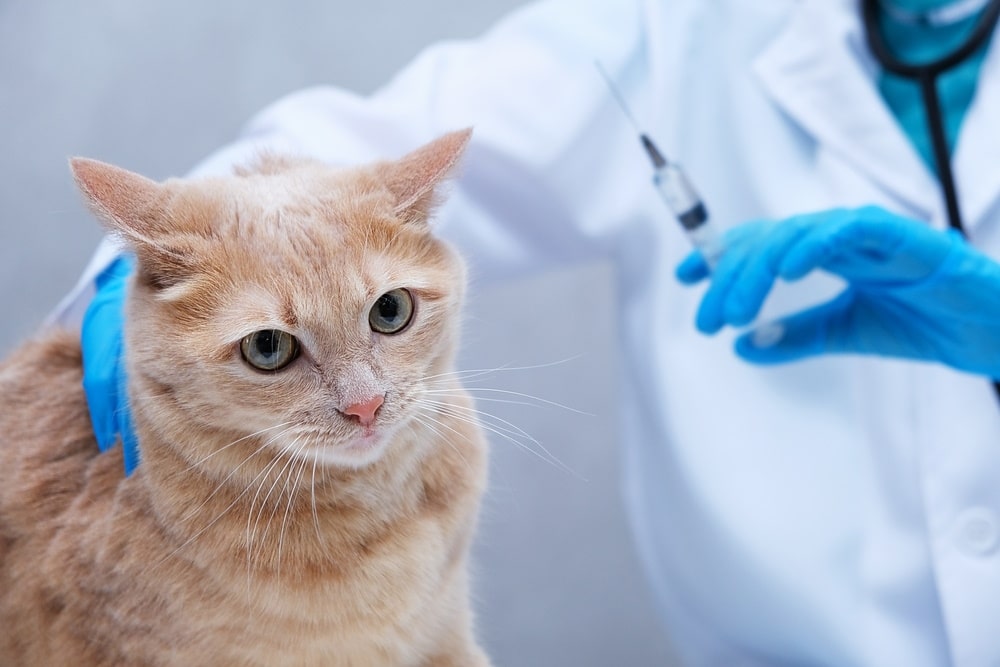
Vaccination Is Key
With the high risk of transmission to humans, particularly in its furious form, vaccination is the most important step you can take to protect yourself and your cat, irrespective of your state’s legislation. Rabies vaccines are considered to be highly protective against infection, with vaccine failure rarely reported.
According to the American Animal Hospital Association (AAHA), the recommended vaccination schedule for cats is as follows:
- First vaccination between 8 and 16 weeks
- Second vaccination within 12 months
- Subsequent vaccinations every 3 years; however, local laws may require vaccination annually, or every 2 years.
An animal is considered to be fully protected 28 days after the first vaccination, and immediately following subsequent vaccinations, provided they are given within the recommended schedule. These dates need to be strictly adhered to, particularly regarding travel.

1- or 3-Year Vaccines—What’s the Difference?
This is where things get a bit confusing, but stay with us. Firstly, we need to talk about adjuvants in vaccines.
Adjuvanted vs. Non-Adjuvanted
An adjuvant vaccine for cats is a type of vaccine that includes an extra substance (called an adjuvant) to boost the body’s immune response to the vaccination, so the body is better prepared to fight off the disease the vaccine is protecting against. This is great from a protective point of view, but it is what causes most of the side effects of vaccination, such as lethargy, fever, swelling, and pain (as the increased immune response). For cats, there is an additional risk associated with adjuvanted vaccines: feline injection site sarcoma (FISS). The vaccinations most commonly implicated in FISS formation are those for feline leukemia virus (FeLV) and rabies virus.
To try to reduce the risks of FISS, vaccine intervals have been altered to minimize the risks of sarcoma formation while maintaining high levels of immunity, which is why most vaccines are recommended to be given every 3 years once a cat has had their initial booster, about 12 months after their kitten vaccination.
The company Purevax has taken an extra step to make vaccines safer. They use a special virus called a recombinant canarypox virus to protect cats against FeLV (feline leukemia virus) and rabies. This method doesn’t require an adjuvant, which helps reduce the risk of side effects.
In the US, there are two versions of the Purevax rabies vaccine: a 1-year and a 3-year injection, with . Based on the differing laws that exist in different US regions, we can only assume that the two formulations have been created to make it easier for vets to comply with this legislation. However, some cat owners have reported that their vets only keep the 1-year formulation in stock, believing the annual vaccination provides .
In the UK, the vaccine is licensed for 3-yearly re-vaccination, following the booster which is given 12 months after the primary vaccination.
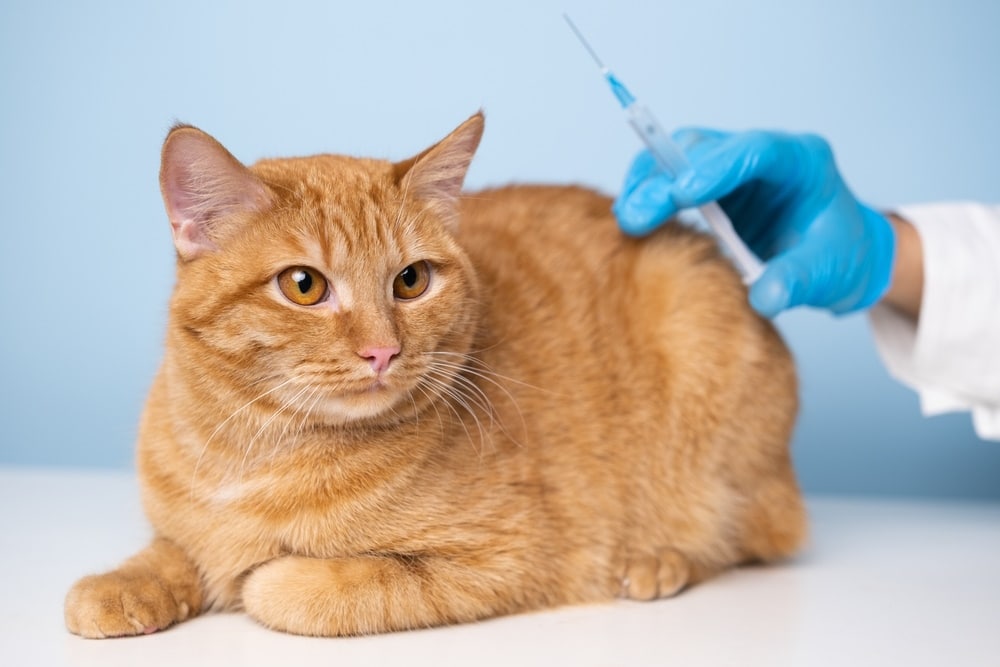
So, Which Vaccine Is Better?
Given the high level of protection given by the non-adjuvanted Purevax rabies 3-year vaccine, there seems to be no doubt that this is the clear winner in terms of minimizing risks while keeping your cat and family protected. However, for cats that have a health condition or are immunocompromised, an adjuvanted vaccine may provide better protection, as non-adjuvanted vaccines rely on a strong immune response to provide future protection.

Vaccine Regulations in the U.S.
Vaccination requirements in the U.S. are generally based on the guidelines set by the manufacturer of the specific vaccine being used. This ensures that vaccinations are administered at intervals that align with the tested safety and efficacy of the product.
Most veterinary clinics will only carry one or two vaccine brands, so you may need to phone around to find one that uses the vaccine you prefer, following the schedule set out by the AAHA. Talk to a vet about their recommendations and experience, as there may be other geographic and individual factors to consider.
If you need to speak with a vet but can't get to one, head over to PangoVet. It's an online service where you can talk to a vet online and get the advice you need for your pet — all at an affordable price!
It’s important to check with your local government body to ensure that you are complying with their laws. Here you can find information on each state’s requirements concerning rabies vaccination, including the minimum age of vaccination, the proof required, penalties, and exceptions.

Final Thoughts
Rabies is an extremely dangerous and deadly virus, and the best way for you to protect yourself, your family, and your pets is through vaccination. Even if you live in an area where rabies infection is uncommon, even a low risk is too high when it comes to this virus.
Many of the concerns of the past regarding adverse reactions to vaccines, particularly with regard to cats, have been significantly reduced through changing vaccine schedules and the creation of a reliable, non-adjuvanted version of the rabies vaccine. Unlike the non-adjuvanted FeLV vaccine, the Purevax rabies vaccine is actually licensed for a 3-yearly dosing, giving an ideal compromise between minimizing side effects and maximizing protection. Be aware that a non-adjuvanted vaccine may not be appropriate for cats with health conditions or compromised immune systems. In these cases, a 3-yearly adjuvanted vaccine would be the safest option.
The confusing labeling and variation in state and local laws surrounding rabies vaccination can make it difficult to know what is best for your feline family member, but hopefully, you can use this information to talk to a vet about your options.
Featured Image Credit: bmf-foto.de, Shutterstock
